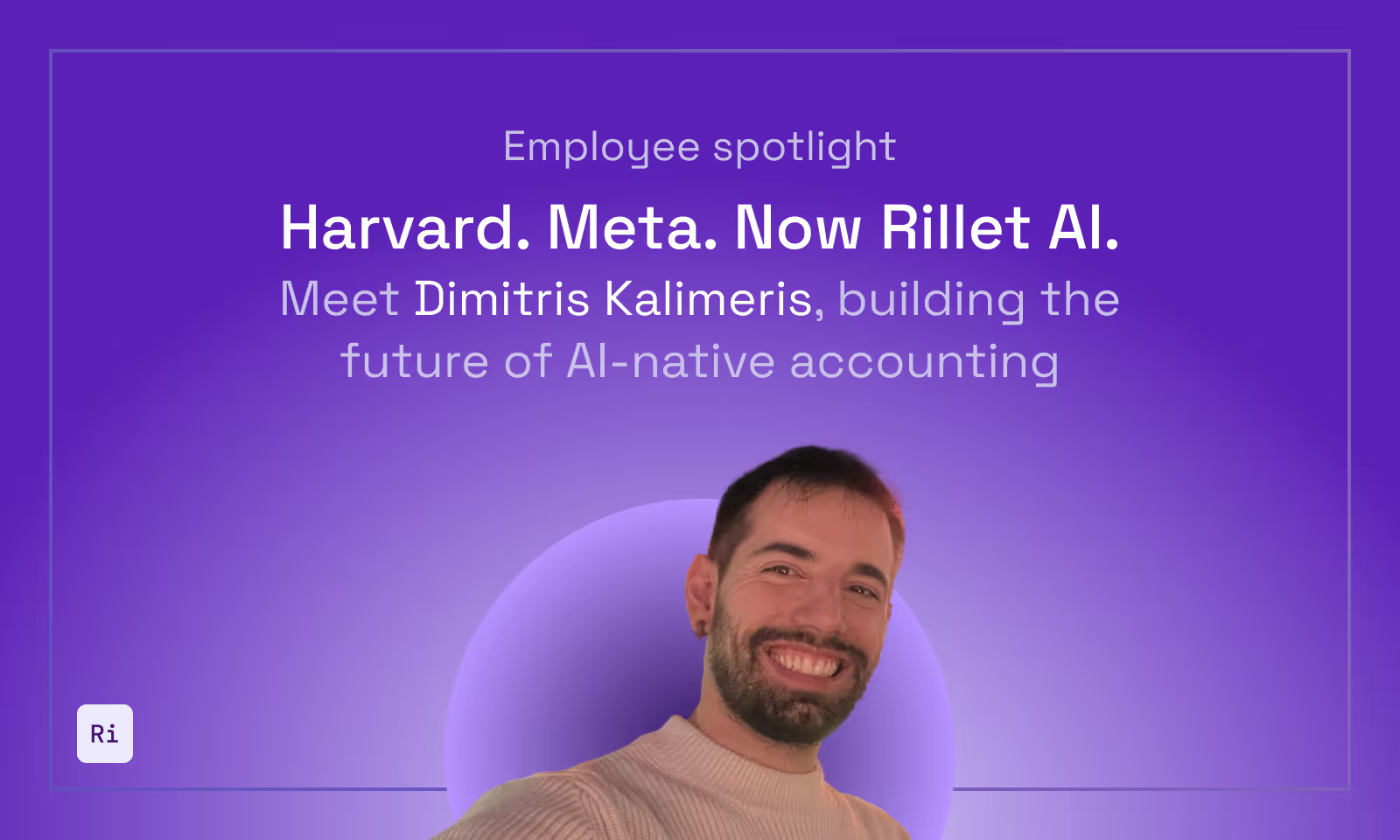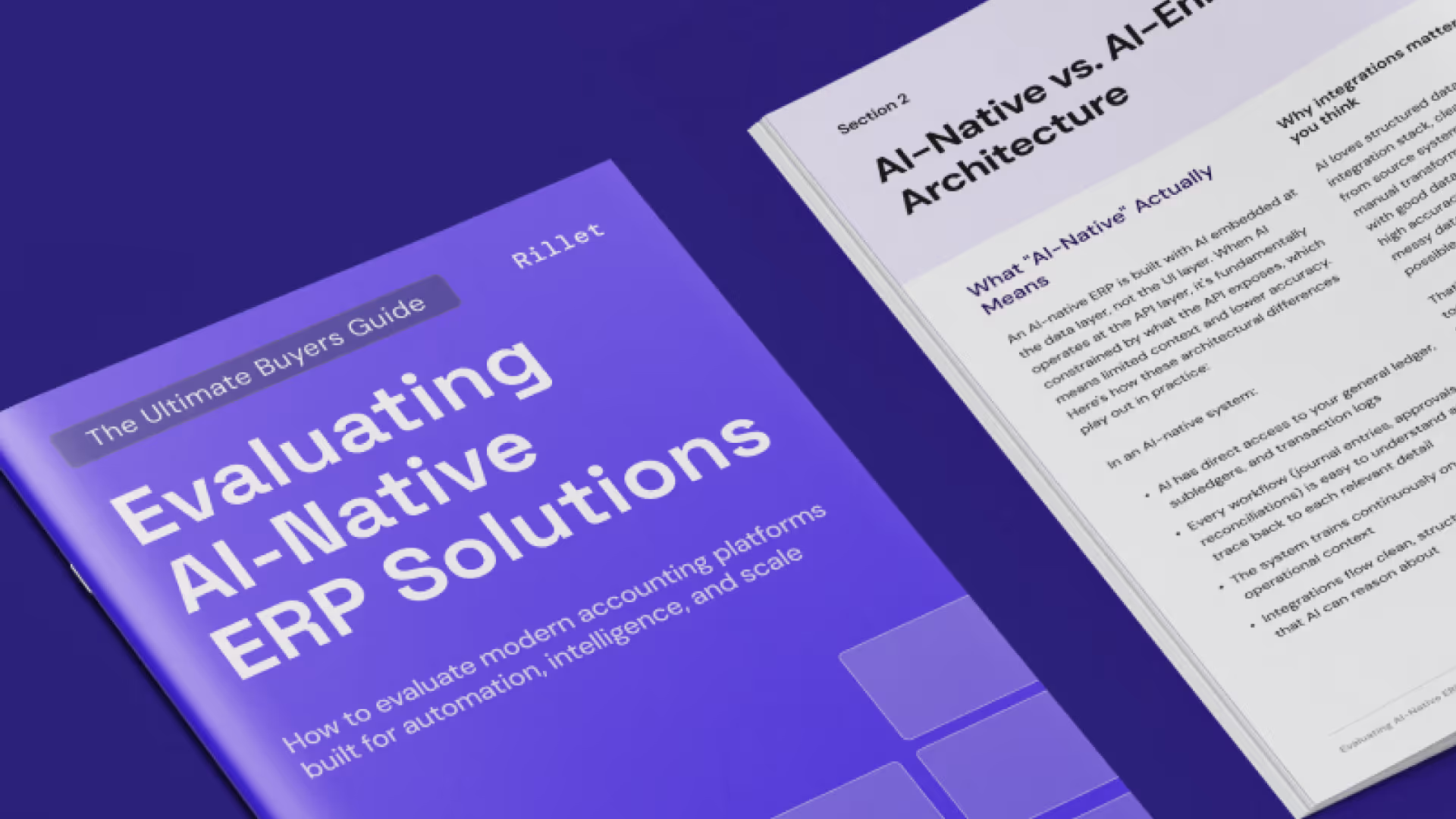Harvard. Meta. Now Rillet AI.


We’re building the future of accounting automation — powered by cutting-edge machine learning. Dimitris Kalimeris, our first machine learning engineer, knows AI. Like a lot.
From optimizing recommendation systems at Meta to earning a PhD from Harvard, Dimitris is driven by curiosity, theory, and impact. We sat down with him to talk about his journey, what drew him to Rillet, and what makes working here exciting.
What do you do at Rillet?
I’m the founding machine learning engineer — though the team is quickly growing. My work focuses on improving the AI that powers our product. A big part of that is around cash reconciliation, where we’re automating how transactions are matched, replacing manual accounting work with intelligent systems that do it automatically.
I’m also working on Aura, our AI agent, which is already answering more complex questions about the data and helping users navigate Rillet more easily. We’re expanding it every day, giving it access to more data and building toward a future where users can define their own workflows — describing what they want to accomplish, and our AI agents handle the rest in the background.
What initially drew you to Rillet?
I came across Rillet on LinkedIn right after they announced their Series A. I could feel the momentum. There wasn’t even a formal application process yet, so I just emailed an address I found on the website!
I ended up talking with Stelios Modes (Cofounder & CTO), Nic Kopp (Cofounder & CEO), and Jorge Velasco (Software Engineer), and those conversations went long because they were so engaging. I knew immediately I really liked the people and the energy. I also wanted a smaller company where I could move fast, have real ownership, and avoid layers of bureaucracy.
At Meta, I worked on large-scale machine learning systems and it was a valuable experience, but I was looking to move to the generative AI space, where there is so much cutting edge research happening. Rillet offered that mix of strong momentum, great people, and the chance to work on things that ship fast. It’s turned out to be a great fit.
You spent several years at Meta. What are you most proud of from that time?
One of the projects I’m proudest of was optimizing Meta’s recommendation systems. At a high level, recommendation systems work in stages — billions of possible suggestions get narrowed down to thousands, then hundreds, and finally ranked by a main-stage model. That pipeline is powerful but also very CPU-intensive.
My work focused on building a platform to optimize that end-to-end process — figuring out how many items to pass between stages for different users. We partnered with other teams across Meta and achieved up to an 11% reduction in CPU usage without hurting recommendation quality. It was great to see how theoretical work could lead to measurable impact at that scale.
You earned your PhD at Harvard. What was the most rewarding part of that experience?
*Laughs* Anyone with a PhD will tell you it’s a tough time — but also rewarding.
For me, it was the people. When I joined Harvard, machine learning was just starting to explode, and there wasn’t much theoretical understanding of why deep models worked. A few of us formed a research group focused on theoretical foundations of ML, and we published some early papers in that space — one of them, SGD on Neural Networks Learns Functions of Increasing Complexity, now has hundreds of citations.
Being part of that community at the start of the modern ML era was amazing. It opened doors: an internship in China and my path to Meta. But the most rewarding part was definitely contributing to that early wave of research and understanding.
How would you describe Rillet in one word?
Refreshing. I am doing something totally new. It feels great to know how much I’m contributing to the product and everything we’ve built.

.png)

.png)

